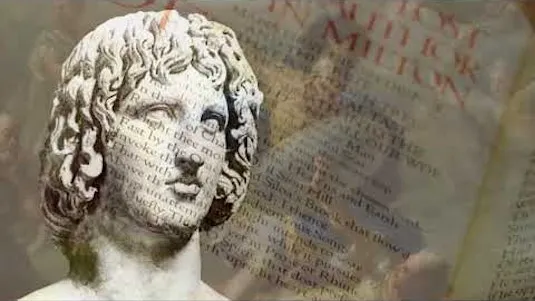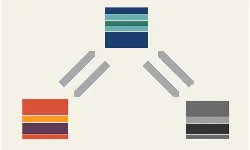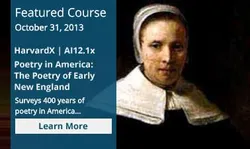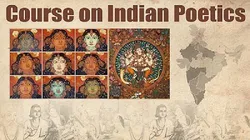
John Milton: Paradise Lost 
John Milton's epic poem, Paradise Lost, published over 350 years ago, has had a lasting impact on modern conceptions of civil liberty, republican government, and free speech. Through its retelling of the biblical story of Adam and Eve in English heroic verse, Milton's poem has shaped the ideas of influential figures such as Benjamin Franklin, Thomas Jefferson, and John Adams. ▼
ADVERTISEMENT
Course Feature
![]() Cost:
Cost:
Free
![]() Provider:
Provider:
Edx
![]() Certificate:
Certificate:
No Information
![]() Language:
Language:
English
![]() Start Date:
Start Date:
Self paced
Course Overview
❗The content presented here is sourced directly from Edx platform. For comprehensive course details, including enrollment information, simply click on the 'Go to class' link on our website.
Updated in [March 06th, 2023]
This DartmouthX course, John Milton: Paradise Lost, provides learners with the opportunity to explore the classic poem by John Milton. First published more than 350 years ago, Paradise Lost retells the biblical story of Adam and Eve in English heroic verse, imitating classical models of epic poetry. Learners will use the Milton Reading Room’s online resources and links to contribute to an ever-growing body of scholarship. The annotations and glosses to Paradise Lost in the Reading Room not only help readers make their way through a notoriously difficult poem, they also provide links to the classical, biblical, religious, and historical works to which the poem so frequently refers. This makes informed engagement with Milton’s epic poem more possible than it ever has been. This course will provide learners with the opportunity to explore the poem and its influence on modern conceptions of civil liberty, republican government, and free speech.
[Applications]
Learners who complete this DartmouthX course will have a better understanding of John Milton's Paradise Lost and its influence on modern conceptions of civil liberty, republican government, and free speech. They will also have the skills to use the Milton Reading Room's online resources and links to contribute to an ever-growing body of scholarship. Additionally, they will be able to make informed engagement with Milton's epic poem more possible than it ever has been.
[Career Paths]
1. Academic Researcher: Academic researchers specialize in researching and analyzing Milton's works, as well as the historical and cultural contexts in which they were written. They may also be involved in developing new interpretations of Milton's works and their implications for modern society. This field is growing in popularity as more people become interested in the history and literature of the past.
2. Literary Critic: Literary critics specialize in analyzing and interpreting literature, including Milton's works. They may also be involved in developing new theories and approaches to literary criticism. This field is growing in popularity as more people become interested in the history and literature of the past.
3. Editor: Editors specialize in editing and proofreading texts, including Milton's works. They may also be involved in developing new editions of Milton's works and ensuring that they are accurate and up-to-date. This field is growing in popularity as more people become interested in the history and literature of the past.
4. Digital Humanities Specialist: Digital humanities specialists specialize in using digital tools and technologies to analyze and interpret literature, including Milton's works. They may also be involved in developing new digital tools and technologies to help scholars and students better understand and appreciate Milton's works. This field is growing in popularity as more people become interested in the history and literature of the past.
[Education Paths]
1. English Literature Degree: An English Literature degree is a great way to explore the works of John Milton and other authors. Students will learn about the history of literature, literary theory, and the craft of writing. They will also gain an understanding of the cultural and historical contexts of literature. Developing trends in English Literature include the study of digital media, postcolonial literature, and the intersection of literature and other disciplines such as psychology and sociology.
2. History Degree: A History degree is a great way to explore the historical and cultural contexts of John Milton's works. Students will learn about the history of the world, the development of civilizations, and the impact of historical events on literature. Developing trends in History include the study of digital history, the history of science and technology, and the history of global cultures.
3. Classics Degree: A Classics degree is a great way to explore the classical works that influenced John Milton. Students will learn about the history of the ancient world, the literature and philosophy of the ancient Greeks and Romans, and the development of classical languages. Developing trends in Classics include the study of digital classics, the history of classical reception, and the intersection of Classics and other disciplines such as anthropology and linguistics.
4. Religious Studies Degree: A Religious Studies degree is a great way to explore the religious and theological contexts of John Milton's works. Students will learn about the history of religion, the development of religious traditions, and the impact of religion on literature. Developing trends in Religious Studies include the study of digital religion, the history of religious thought, and the intersection of religion and other disciplines such as psychology and sociology.
Course Provider

Provider Edx's Stats at AZClass
John Milton: Paradise Lost is a book that retells the biblical story of Adam and Eve in heroic verse in English. They can explore the poem's arguments about free will, tyranny, and slavery, and how it affects modern concepts of civil liberties, republican government, and free speech. Learners also have access to online resources and links in the Milton Reading Room, contributing to the growing academic body. Notes and notes to Paradise Lost in the Reading Room provide links to classical, biblical, religious, and historical works frequently referenced by the poem, making it easier to understand the poem.
Discussion and Reviews
0.0 (Based on 0 reviews)
Explore Similar Online Courses

From Doodle to Logo

Coding for Designers Managers & Entrepreneurs II

Python for Informatics: Exploring Information

Social Network Analysis

Introduction to Systematic Review and Meta-Analysis

The Analytics Edge

DCO042 - Python For Informatics

Causal Diagrams: Draw Your Assumptions Before Your Conclusions

Whole genome sequencing of bacterial genomes - tools and applications

Poetry in America: The Poetry of Early New England

Poetry: What It Is and How to Understand It


Start your review of John Milton: Paradise Lost